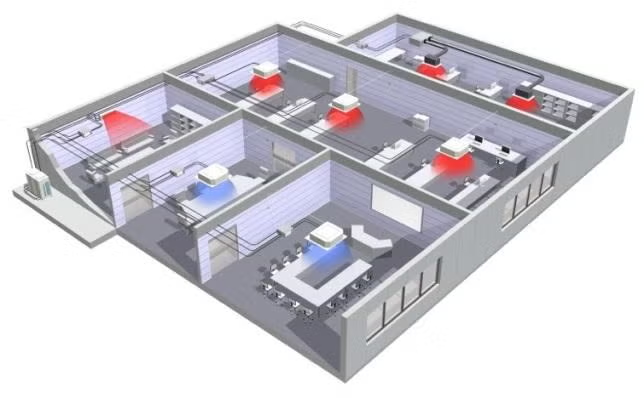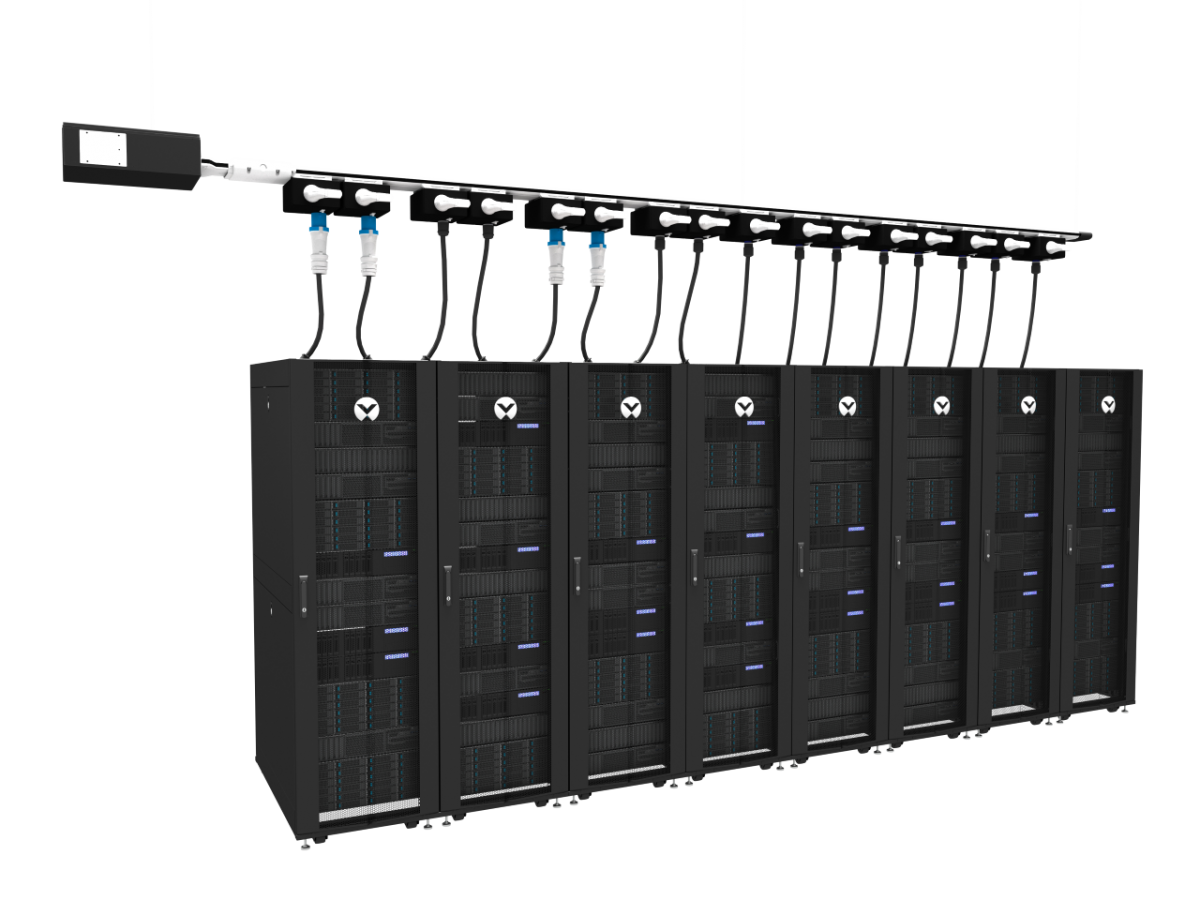
The Intelligent Business Applications Market is experiencing a seismic shift in 2025, driven by the integration of artificial intelligence (AI), machine learning (ML), and cloud technologies that are redefining how enterprises operate. These applications, which include enterprise resource planning (ERP), customer relationship management (CRM), and business intelligence (BI) tools, are embedding advanced analytics and automation to enhance decision-making and efficiency. This article explores the latest developments propelling the growth of the intelligent business applications market, highlighting key trends and their impact on global enterprises.
Download FREE Sample: https://www.nextmsc.com/intelligent-business-applications-market-ic3213/request-sample
AI and Machine Learning as Core Drivers
The integration of AI and ML into business applications is a primary force behind the market’s growth. These technologies enable applications to analyze vast datasets, predict trends, and automate complex processes. In 2025, platforms like Microsoft Power BI and SAP Analytics Cloud are leveraging AI to provide real-time insights, allowing businesses to make data-driven decisions swiftly. For instance, AI-driven tools can forecast demand, optimize supply chains, and personalize customer interactions, transforming operational efficiency.
Recent advancements highlight the role of generative AI, such as ThoughtSpot’s Spotter, which generates conversational reports and responds to intricate user queries. This capability is particularly valuable for enterprises managing complex datasets, enabling non-technical users to access actionable insights. The focus on AI is not just about automation but about augmenting human decision-making, making intelligent applications indispensable for modern businesses.
Cloud Adoption and Scalability
Cloud-based intelligent business applications are revolutionizing enterprise operations by offering scalability, flexibility, and accessibility. In 2025, the widespread adoption of cloud technology is enabling businesses to deploy applications without heavy infrastructure investments. Platforms like Salesforce and Google Cloud’s BI tools integrate seamlessly with cloud ecosystems, providing real-time data processing and collaboration across distributed teams.
The shift to cloud-based solutions is particularly beneficial for small and medium-sized enterprises (SMEs), which can now access enterprise-grade tools without significant upfront costs. Recent reports indicate that cloud adoption is a key growth driver, with businesses leveraging hybrid cloud models to balance data security and scalability. This trend is supported by government initiatives in regions like Asia-Pacific, which are promoting digital transformation to enhance business competitiveness.
Focus on Data-Driven Decision-Making
The demand for data-driven decision-making is fueling the adoption of intelligent business applications. These tools provide actionable intelligence by automating data analysis and visualization, moving beyond traditional descriptive analytics. In 2025, BI platforms are at a “breaking point,” with legacy tools struggling to handle the scale and speed required by modern businesses. Solutions like Sigma and Looker are addressing this by offering advanced data visualization and real-time analytics, enabling enterprises to respond to market changes swiftly.
The ability to integrate with enterprise applications, such as ERP and CRM systems, is enhancing their utility. For example, Eurostat reported significant ERP adoption among EU enterprises in 2023, with 86.3% of large enterprises using these systems, a trend that continues to drive the intelligent applications market in 2025. These integrations allow businesses to streamline operations, from inventory management to customer engagement, fostering a holistic approach to data management.
Inquire Before Buying: https://www.nextmsc.com/intelligent-business-applications-market-ic3213/inquire-before-buying
Enhancing Customer Experience and Engagement
Intelligent business applications are transforming customer experience by enabling personalized interactions at scale. CRM platforms, enhanced by AI, analyze customer behavior and preferences to tailor marketing strategies. Tools like Percept Insight use segmentation based on demographics and behavior to optimize user engagement through channels like WhatsApp and email, reducing churn and boosting conversions. This focus on customer-centricity is critical in competitive markets where retention is as important as acquisition.
In 2025, companies are leveraging these applications to discern emerging trends and optimize marketing strategies. For instance, API-powered ad intelligence tools are being used for competitive research and lead scoring, helping businesses refine their outreach. These advancements are enabling enterprises to build stronger customer relationships and drive revenue growth.
Security and Compliance Challenges
As enterprises adopt intelligent business applications, data security and compliance remain critical concerns. High-profile cyber-attacks, such as the Co-op breach, underscore the need for robust security measures. In 2025, applications are incorporating advanced security features like end-to-end encryption and multi-factor authentication to protect sensitive data. Additionally, compliance with regulations like GDPR is driving the development of tools with built-in data governance capabilities.
Recent reports highlight the growing importance of data governance, with solutions designed to ensure structured data management and regulatory compliance. These features are particularly vital for industries like healthcare and finance, where data breaches can have severe consequences. The integration of AI-driven security analytics is helping businesses proactively address threats, ensuring trust and reliability.
Opportunities in Emerging Markets
The intelligent business applications market is seeing significant growth in emerging markets, particularly in Asia-Pacific. Countries like China, India, and Japan are investing in digital infrastructure, driving demand for AI-powered applications. Government initiatives promoting technology startups and resource optimization are creating a favorable environment for market expansion. These regions are adopting intelligent applications to support high-bandwidth applications and real-time data processing, eliminating operational bottlenecks.
The rise of smart cities and IoT applications is also creating opportunities. Intelligent business applications are being used to manage data from connected devices, supporting urban planning and industrial automation. The festive season in late 2025 is expected to boost adoption, as vendors offer promotions to attract new users.
Challenges to Overcome
Despite its growth, the market faces challenges. The complexity of integrating intelligent applications with legacy systems can deter adoption, particularly for SMEs with limited IT resources. Supply chain disruptions affecting hardware and software components also pose risks. Additionally, the shortage of skilled personnel to operate advanced tools remains a barrier, though vendors are addressing this through training and user-friendly interfaces.
Conclusion
The intelligent business applications market is transforming enterprises in 2025 by leveraging AI, cloud technology, and data-driven insights to enhance efficiency and competitiveness. Innovations in real-time analytics, customer engagement, and security are driving adoption across industries, while emerging markets offer significant growth opportunities. Despite challenges like integration complexities and skill gaps, the market’s alignment with digital transformation ensures a robust future. As enterprises continue to embrace intelligent applications, they are poised to unlock new levels of productivity and innovation, redefining the global business landscape.




















Write a comment ...